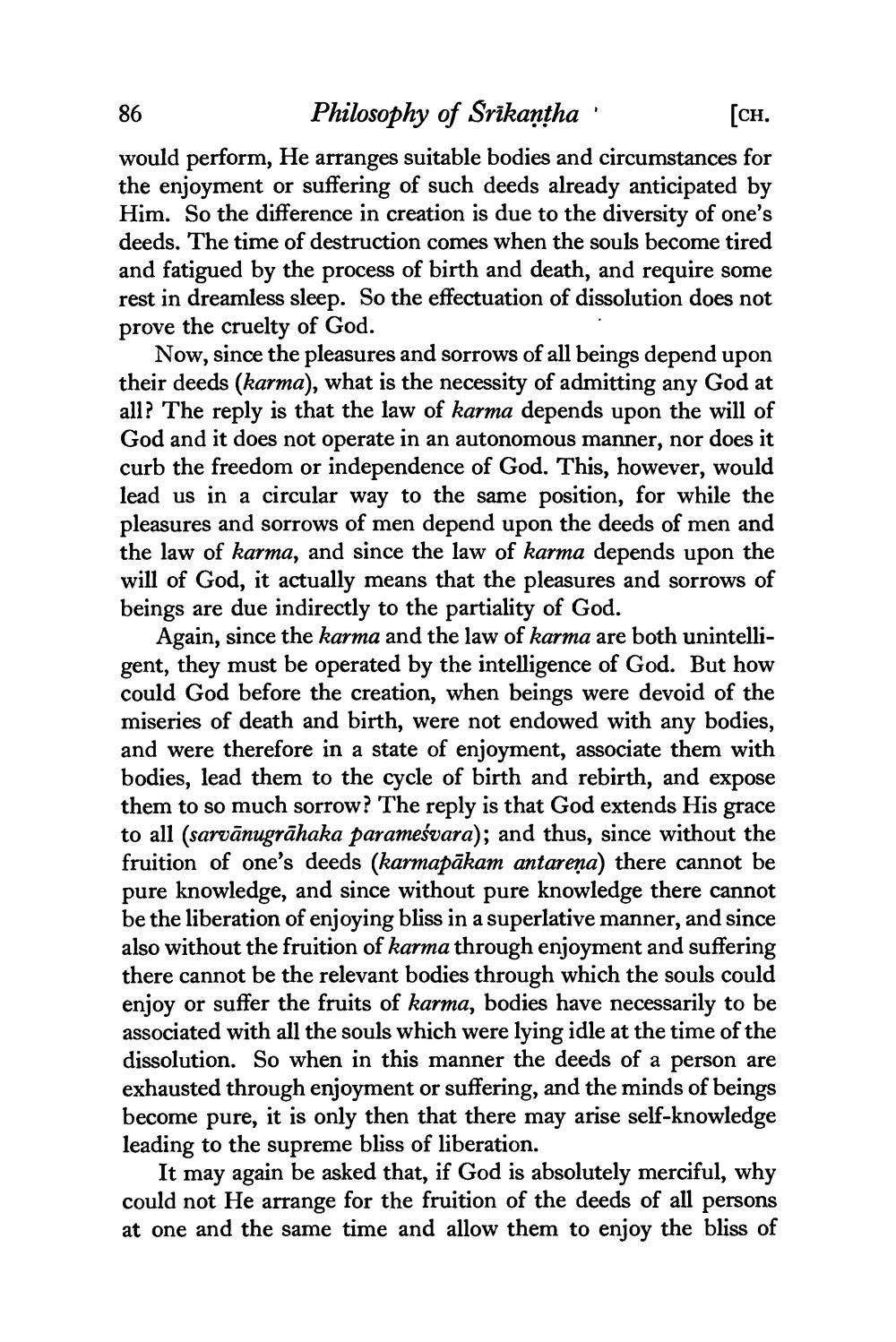________________
86
Philosophy of Srikantha' [CH. would perform, He arranges suitable bodies and circumstances for the enjoyment or suffering of such deeds already anticipated by Him. So the difference in creation is due to the diversity of one's deeds. The time of destruction comes when the souls become tired and fatigued by the process of birth and death, and require some rest in dreamless sleep. So the effectuation of dissolution does not prove the cruelty of God.
Now, since the pleasures and sorrows of all beings depend upon their deeds (karma), what is the necessity of admitting any God at all? The reply is that the law of karma depends upon the will of God and it does not operate in an autonomous manner, nor does it curb the freedom or independence of God. This, however, would lead us in a circular way to the same position, for while the pleasures and sorrows of men depend upon the deeds of men and the law of karma, and since the law of karma depends upon the will of God, it actually means that the pleasures and sorrows of beings are due indirectly to the partiality of God.
Again, since the karma and the law of karma are both unintelligent, they must be operated by the intelligence of God. But how could God before the creation, when beings were devoid of the miseries of death and birth, were not endowed with any bodies, and were therefore in a state of enjoyment, associate them with bodies, lead them to the cycle of birth and rebirth, and expose them to so much sorrow? The reply is that God extends His grace to all (sarvānugrāhaka parameśvara); and thus, since without the fruition of one's deeds (karmapākam antareņa) there cannot be pure knowledge, and since without pure knowledge there cannot be the liberation of enjoying bliss in a superlative manner, and since also without the fruition of karma through enjoyment and suffering there cannot be the relevant bodies through which the souls could enjoy or suffer the fruits of karma, bodies have necessarily to be associated with all the souls which were lying idle at the time of the dissolution. So when in this manner the deeds of a person are exhausted through enjoyment or suffering, and the minds of beings become pure, it is only then that there may arise self-knowledge leading to the supreme bliss of liberation.
It may again be asked that, if God is absolutely merciful, why could not He arrange for the fruition of the deeds of all persons at one and the same time and allow them to enjoy the bliss of




